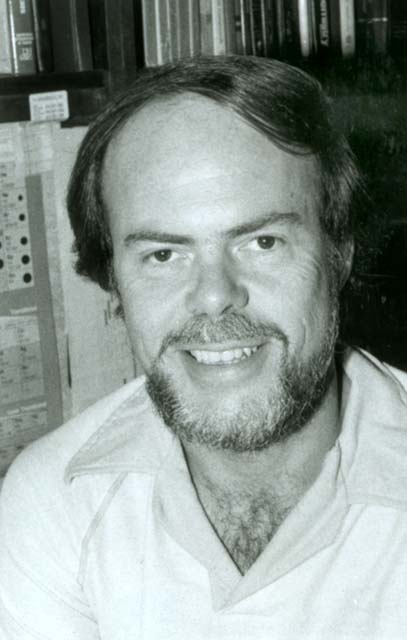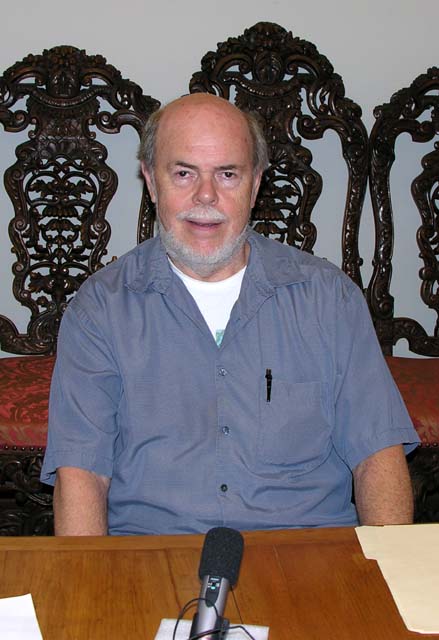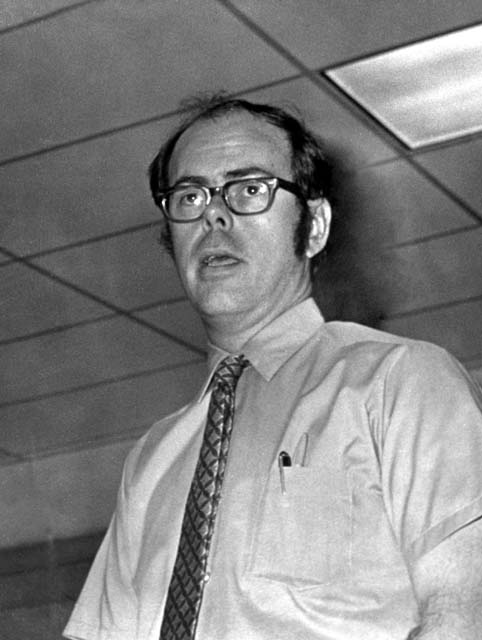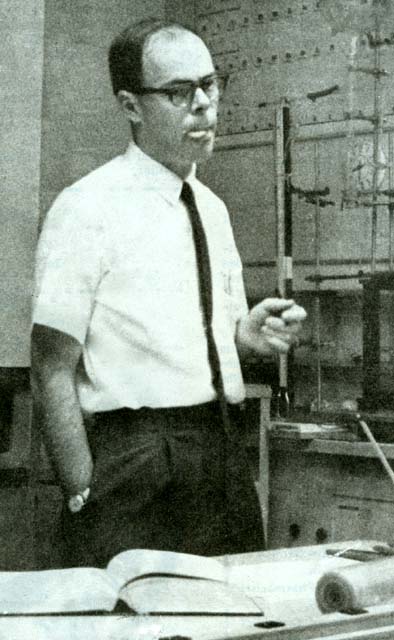Interviews
Next
|
Erich
Blossey came to Rollins College in 1965 to teach chemistry. During his years with Rollins College, he has
participated in
numerous research projects as well as been an active professor
of
chemistry.
Blossey
was born in Toledo Ohio. As
an undergraduate, Blossey attended Ohio State, where he received
his
B.S. in 1957. In 1959,
Blossey received his M.S. at Iowa State, and then in 1963, he
received
his Ph.D. in Chemistry from the Carnegie Institute of Technology
(now
called Carnegie Mellon University).
During
his time at Rollins College, Blossey has been awarded the
following
honors: Arthur Vining Davis
Fellowship Award, 1978; Bush Professor of Science, 1981, as the
fourth
member of the faculty to receive the award; and the D.J. and
J.M. Cram
Chair of Chemistry, which was established by Nobel Prize winner
Donald
Cram and his wife Carolyn as an endowment before Mr. Cram's
death.
Blossey is also a member of the American Chemical
Society, The
Royal Society of Chemistry, American Association for the
Advancement of
Science, and Phi Lambda Upsilon.
|
|

...You
were always interested in Chemistry as your major and career
choice.
Why was that?
|
|
-
"...Everyday
is really exciting to me, in terms of new things happening
and stuff
that weíre doing, and research.
Largely I think itís the research that motivates me.
And then from the research is to actually impart that
to
students.
We try to interpret for them what all this excitement
I have,
what it means to them in their own life..."
-
"So
thatís how they learn, and they learned a tremendous amount
in ten
weeks that summer... It
started in chemistry... With no money... All of them came
back, and
did summer research after that as they progressed through
Rollins."
"...It
was a very exciting time in terms of doing winter term
courses that
were different, where a student took only one course and
could do
things that were not possible in other ways... And in
chemistry...
everyday, doing research in the laboratory, which is very
difficult
to do in a normal academic year."
-
"To
me, the highest form of education is research, and we need
to
understand that... If you really understand anything about
learning,
learning theory and so forth, thatís where the highest form
of,
actually education, is research... Simply because a student
is going
to see that they must learn something to do their
problem..."
-
"Probably
some of the greatest teaching experiences Iíd had, working
as the
tutor in the courses, because a student would come in, youíd
grade
their little test... Point out their errors... You had an
opportunity to talk to them about the mistakes the student
was
making... So they would have an immediate response from what
they
had just put down on a quiz. That to me was probably
really
exciting because there were times when you could see the
student go
'Oh!' "
(Back
to Top) |





